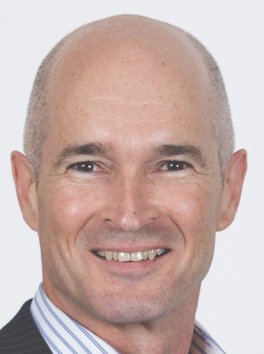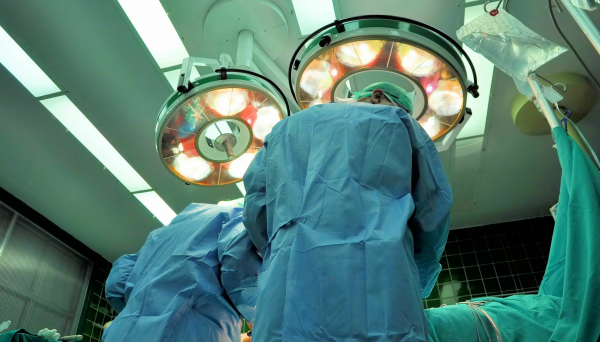The CEO of the Medical Technical Association of Australia, Ian Burgess, responds to a report on the presence of company representatives in hospital theatres.
Last night’s report by the ABC’s 7.30 program served only to promote the negative smear campaign being waged by the corporate health insurance lobby against patient access to life-saving medical technologies, and the in-theatre technicians who are there to help ensure their safe and effective use during vital operations.

It’s important that the many in-theatre technicians who are out there hear these words: the work you do, each and every day, hour after hour, to support surgeons and operating room teams helping save lives is vital. Never forget, what you do saves lives, and Australians thank you for that.
On call whenever needed, these technicians are there when the rescue helicopter lands on a weekday or weekend in the middle of the night with a life-threatening emergency. They are highly trained experts in the medical technologies being used in each specific operation to save people’s lives. It is these technical specialists who support surgeons and operating theatre staff in making sure the extensive and complex array of technologies are safely and effectively used during operations.
We know that we have an acute shortage of nurses in Australia, with estimates of a shortfall of 8,000 just in the private system. In-theatre technicians are a valuable support for theatre nursing staff, enabling them to provide greater support for the surgeons and most importantly the patient. If corporate health insurers’ efforts to remove technicians succeed, it would result in greater stress being placed back onto the health system, overloading nursing staff and health professionals, and significantly impacting the quality of care and outcomes for patients.
We know why corporate health insurers are running a campaign in the media to smear in-theatre technicians – it’s because they do not want patients to have that support any longer. It’s extremely disappointing the national broadcaster chose to run an insurer-pitched story, where the main complainant is a confirmed paid consultant for the corporate health insurance lobby, and who was there simply to peddle insurers’ falsehoods and disinformation. Thankfully, there are many more voices in the health sector who are standing up for patients and the important work in-theatre technicians do.
The Australian Orthopaedic Association acknowledged this vital work in a recently reissued public statement which noted in-theatre technicians’ “specific product knowledge, expertise and continuity can enhance the instrument handling efficiency of the case and contributes to patient safety and better outcomes… [in-theatre technicians] also assist with identification of implants from the hospital’s consignment stock, by type and size, so that operating room staff can provide the specific devices required for implantation by the surgeon.”
The shameful and dishonest attacks from the corporate insurance lobby and their paid consultants, on in-theatre technicians follow a recent exposé in The Australian newspaper that revealed corporate health insurers have profiteered on the back of the pandemic to the sum of $2.1 billion. We know from recent Australian Prudential Regulatory Authority data (APRA) that corporate health insurers are holding onto their customers’ money from delayed surgeries, instead of giving it back, as they had promised.
In addition to hoarding $2.1 billion of their customers’ money, the latest APRA data released on 22 November shows that insurers like Medibank, Bupa and NIB, have increased their premium revenue by $629 million in the year to September 2022, and, of that, insurers spent a whopping $212 million (one third) on increased management expenses. This was while their spending on medical devices fell by $122 million for the year. Insurers' management fees - executive salaries, bonuses, perks, and excessive marketing - reached an all-time high of $2.6 billion. This all the while Australian families continue to struggle with the cost-of-living crisis.
Unfortunately, what we are seeing right now, through the media and other channels, is the corporate health insurance lobby stepping up their aggressive campaign to maximise profits at the expense of patients.
They are demanding deeper and faster cuts to life-saving medical devices and technical support services without regard for how this impacts patient access to medical technology, how it impacts our clinicians and hospitals, or how it impacts the value proposition for having private health insurance.
Rather than focusing on ways to cut benefits and vital support services for patients, insurers should look inward at ways they can help cut their own costs by putting patients, not profits, at the centre of their decision-making. If insurers won’t then MTAA, and other key stakeholders in the health sector, believe they should be made to. That’s why MTAA has called on the Government to investigate insurers' profiteering and practices.
Australians don’t want decisions about access to health and care dictated by the corporate health insurance lobby – which is what we risk if regulators don’t start taking a closer look at insurers’ behaviour and their use of customers’ funds. The Australian health system cannot afford for patients to abandon private health insurance because of these unreasonable practices.
It's well past time corporate insurers put patients, not profits, first.
Ian Burgess
